Robert Gesink: The five races that changed my life
Dutchman takes us down memory lane to tell the story of his career
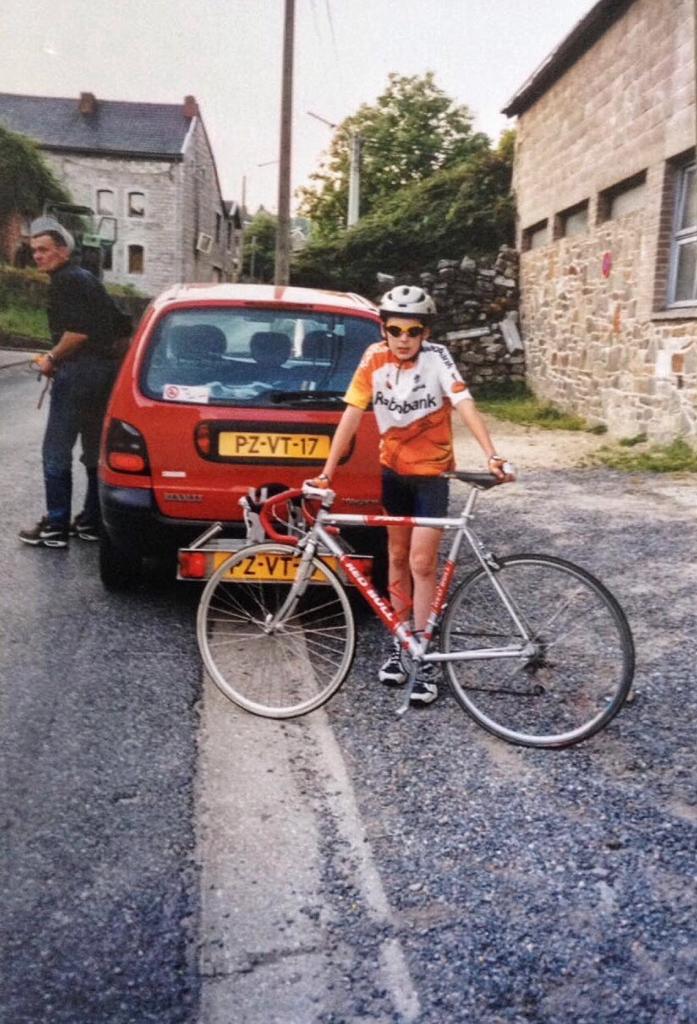
Robert Gesink is currently in his 14th season as a professional, and his 14th with the Jumbo-Visma squad that were known as Rabobank when he started out back in 2007.
Having burned bright with promise early on, the Dutchman's career was almost derailed by a terrible leg break in 2011. He recovered and went on to win a number of big races and record numerous Grand Tour top-10 finishes, but, as he tells us, he wonders what might have been had he not suffered that injury. At 33, Gesink has become more of a domestique in the past couple of years, using his experience at a squad that has become one of the best in the WorldTour.
Here, Gesink takes us back to the beginning and through to the present day, to tell the story of his career through the five races that have meant the most to him.
Tour of Belgium 2007 – Stage 4
If you want me to put things in order then I think it’s only logical to start at the beginning and my first year as a professional rider in 2007. I was a young kid at Rabobank, having come through their development programme, and I won a stage in the Tour of Belgium on a day that saw us race on the Côte de la Redoute. Although I’d had some good results as an Under-23, this was my first victory at the highest level and against the true elite.
The climb of La Redoute holds a special place in my heart. My late father would ride the sportive version of Liège-Bastogne-Liège the day before the pro race and during the first year that I started riding, I went with him. I must have been around 10 years old. We packed up the car and loaded up my bike and I was super excited to be going on this adventure with dad.
I remember how I felt as we headed towards La Redoute but when we arrived, having spent hours in the car, we realized that I had forgotten my cycling shoes. All I had was the sneakers I was wearing, so I ended up riding La Redoute with these little SPD pedals and sneakers. I got to the top of the climb, exhausted of course, but with a real sense of triumph.
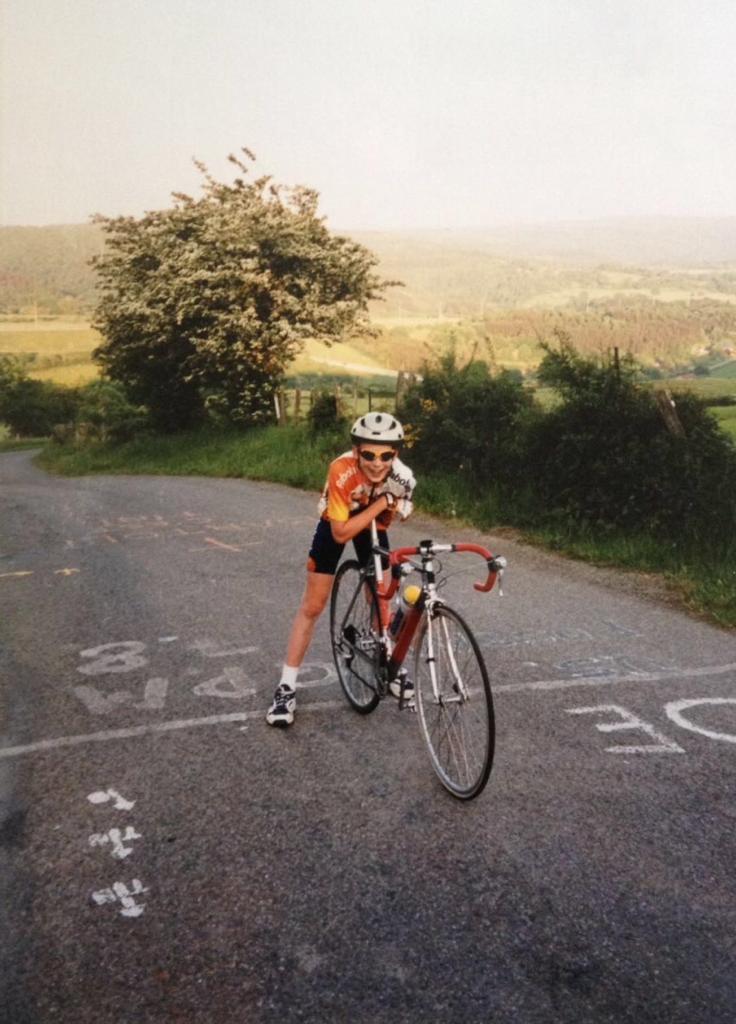

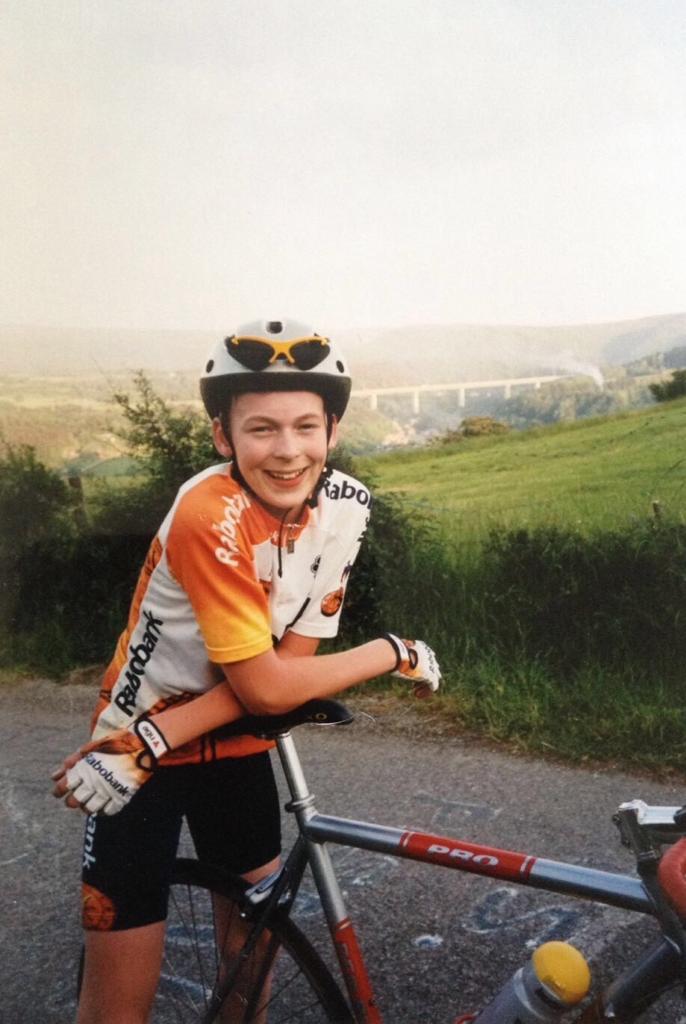
As a pro rider you tackle hundreds if not thousands of climbs during racing and training but only a handful resonate with you. It could be because of a win, or perhaps you just really like the feel of the climb and the gradient, but some, like La Redoute, touch you in another way.
Get The Leadout Newsletter
The latest race content, interviews, features, reviews and expert buying guides, direct to your inbox!
So, in my first pro year I raced the Tour of Belgium and on stage 4 the race tackled La Redoute. It was two days after I turned 21, and it was the queen stage of the race. Just before the climb, I kept hesitating. I was the new kid on the block but the sports director kept telling me that if I still wanted to win then now was the moment to strike. I jumped on the pedals just at the right moment, with around 7km to go, and managed to hold off the chasers.
I don’t remember much about how I stayed away but winning in my first year meant a lot but it also made me think back to the time I rode up the climb with my father, in my Rabobank kit and sneakers. It was my father who first put me on the bike, and we would ride together a lot in the east of Holland. He wasn’t there when I won in Belgium but he was present for many of the other beautiful moments in my career. He saw a lot of good things.
I’ve never managed to ride as well on La Redoute in the big one, in Liege-Bastogne-Liege, but I’ll give it one more try next year.
Tour of California 2012
I had a bad crash at the end of 2011 while I was out training, and sustained a broken femur. It was a stupid crash and happened just a few weeks before the Worlds. I was in great shape up until the fall. I’d finished second behind Philippe Gilbert in Quebec, which, when you consider how strong he was that year, almost felt like a win.
But the accident was career-threatening and it left the bone broken in four places. I had one massive surgery and there’s still some metal in there and one leg is still shorter than the other.
When I came back at the start of 2012, I got through some races but the Tour of California that spring was a breakthrough moment for me because it was my first win since the accident. I took the stage at Mt.Baldy and managed to seal the overall standings a day later but the overriding feeling I had after that win was relief.
It felt like I was back at my best level, or close to it, because during the winter of 2011, it was low point for me. I rolled out of hospital in a wheelchair and had to learn how to walk again. There was a lot of work required to come back, both mentally and physically.
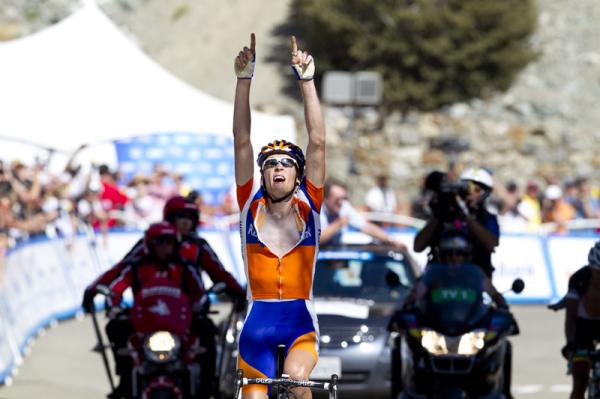
Back in those years, I was considered to be one of the next Grand Tour winners, so there was a lot of expectancy on my shoulders. It never quite happened for me, of course, and the balance between the left and right legs was never quite the same but given that the surgeon told me how complicated the operation would be in the first place, I think I was lucky in many ways. I could never say that the leg break was the end of my Grand Tour dreams - I still had good results and did top 10s - but it was a factor.
Cycling also changed a lot around that period, too. The GC riders got smaller and lighter and there became more of a focus on weight. I’m 70 to 71kg and I’ve been there for a number of years making those efforts, so these days when you get to the climbs and the Colombians are still having a good time and you’re already suffering, it makes a difference. I’ve still won some beautiful races but certainly that leg break was significant.
I actually had history with the Tour of California, too, because back in 2007, when I turned pro, it was the first race Rabobank sent me to. We had a strong team at the race but it was February and no one really wanted to go for GC.
I put my hand up and the team, as way of thanking me, put me in last in the opening time trial. It meant I was one of the final riders to leave the start house with the then world time trial champion, Michael Rogers, chasing me down at two minutes. I was 20, a kid, and I couldn’t even have a beer after the race like a lot of other guys, but to go back and win was a special feeling.
GP de Québec 2013
My win in Montréal in 2010 proved to me and lot of other people that I could succeed in stage races and one-day events, and that I didn’t have to be pigeonholed as one type of rider.
I’ve always been a rider, and a fan, who can appreciate different aspects of the sport and, as far as I’m concerned, if you beat a guy like Peter Sagan, like I did in Montréal, then it counts as an important one-day classic. And just for the record, I beat him again in Québec a few years later in a sprint. I’ve no idea how that happened.
Actually I do, because he attacked on the final lap in that race and he was so strong I couldn’t even follow. He attacked again, and then all the sprinters were so full of lactate and I could just about keep it together. Sagan basically did a great job for me because by the time the sprint started all the fast guys had nothing left.
If I had to choose between my two Canadian wins then I’d select Québec for this list.
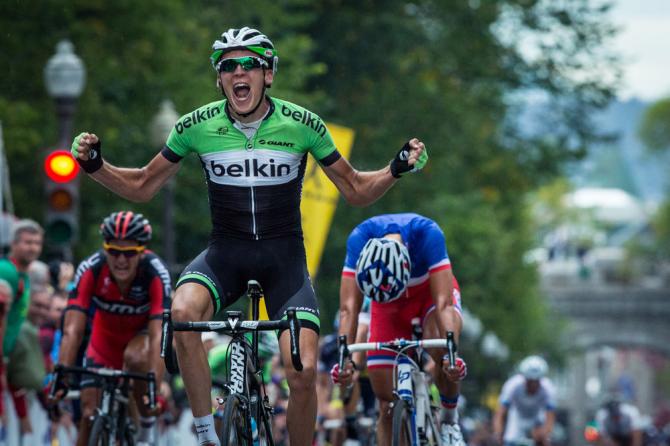
I’d had a tough year that season and had been forced to quit the Giro because of a heart problem but I’d still gone to the Tour to work for Laurens ten Dam and Bauke Mollema. To come back, train hard, and win Quebec was another unforgettable moment.
Often, riders will fall into the trap of looking back and thinking, when they’ve won a rac, that everything had gone perfectly, but the reality is that that’s hardly ever the case. Your mind plays tricks on you, even telling you that you had no pain in your legs when you crossed the line. But I know for sure I was going full gas and working hard that day.
Even when you win, you suffer, and as a rider you can spend years searching for Quebec legs again. You might not find them again but that doesn’t mean you can’t taste another victory. With two wins in Canada I’m a bit of a specialist. Maybe I should consider moving there.
Vuelta a España 2019
The Vuelta has played a big part in my career. I’ve talked about races I’ve won as an individual but I have to mention the 2019 Vuelta a Espana and winning the race as part of a team for Primož Roglič. I had a big role in that and helped not just him but the rest of the team, too.
I’d been waiting a long time for a moment like that in my career; where I could use my experience to help others and be part of a team that could bring home a Grand Tour victory. We had some young guys on the team so being the old man with some wisdom was a really proud moment in my career. It signified a shift for me that really started with the fifth race on my list.
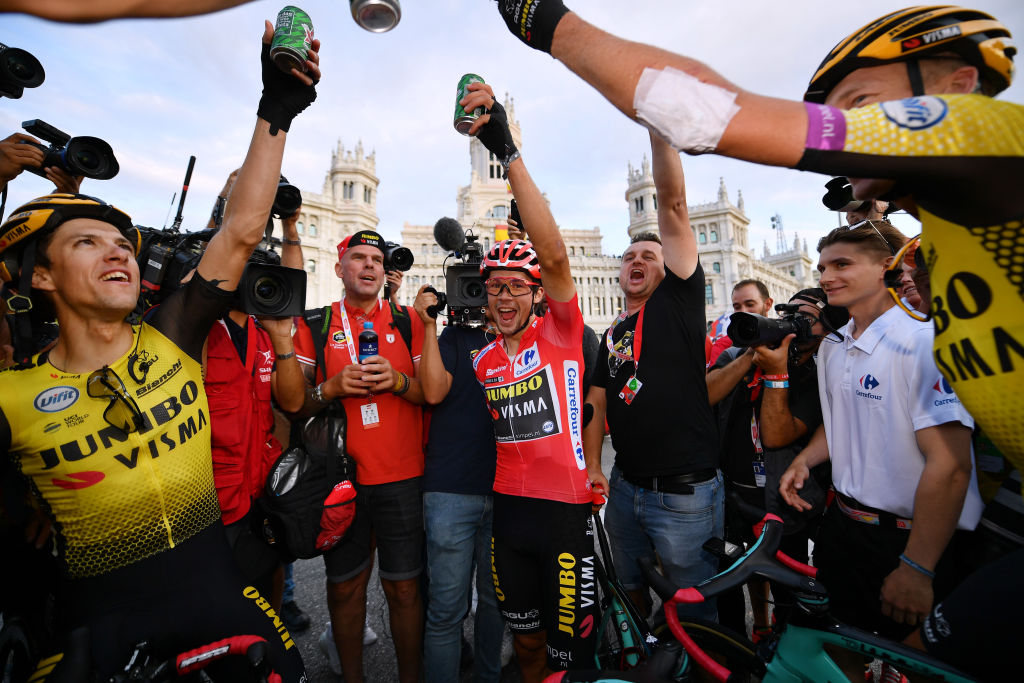
I think that I reached the maximum I could when it came to stage racing and Grand Tours. It wasn’t my highest finish but I was immensely proud of my sixth place in the 2015 Tour. It was the best I could do and the only guys ahead of me that year were Grand Tour winners like Chris Froome and Alberto Contador. Now I’m racing for someone who can make the difference.
In the mountains at the Vuelta in 2019 it was us, Astana and Movistar who made the race, and we were deciding on which breaks would go and who we would chase. It was a different way of racing for me after my time as a Grand Tour leader, when I was often waiting for others to attack before being forced to go full gas until the finish.
Vuelta a España 2016 - stage 14
In 2016 I came to the Vuelta to support Steven Kruijswijk but he crashed out in the first few days and that left us without a real GC objective. It meant that we all had to start riding for stage wins and luckily I managed to take home the queen stage.
It was an important moment in my life because I was already having doubts about whether my GC days in Grand Tours were behind me. It had reached the point where, year after year, Grand Tours had become such focused events for me that there was no chance to enjoy the moment or relax.
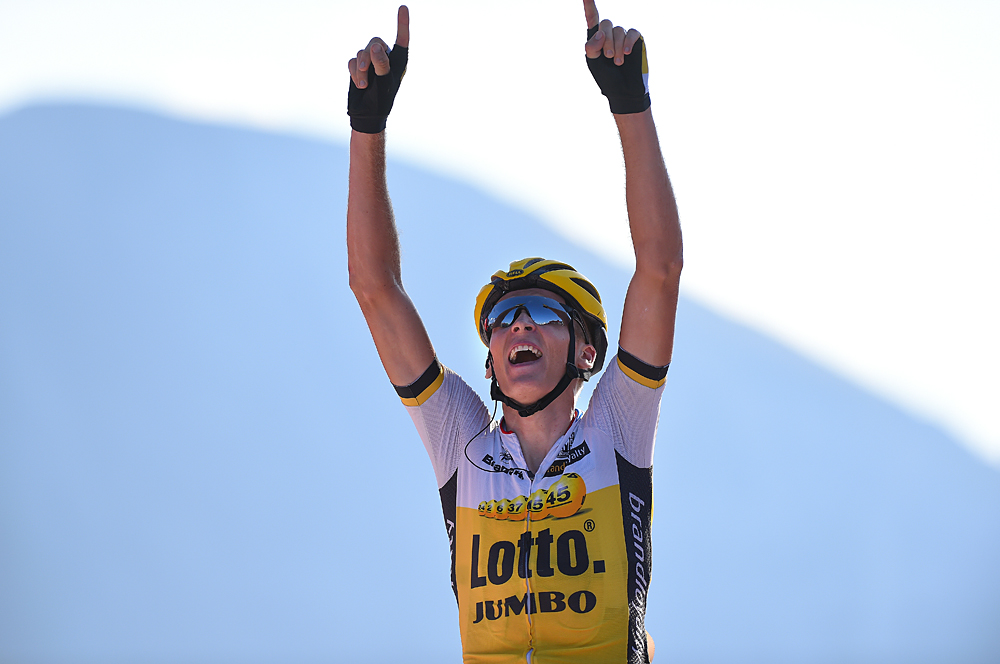
In 2016, though, I finally had a chance to switch between being on and off. Now I have the chance to still win Grand Tours but as the part of our collective team. It means I can be more precise over the stages in races that I want to try and win and that I can find a better balance when it comes to stage racing. Without the 2016 Vuelta stage win, that might not have been possible, because it gave me some freedom and, at my age, that’s incredibly important.
To have freedom when you’re an experienced rider can be rare but in my case it has opened up new opportunities both for me and my teammates. Now I’m the guy who can still be competitive but also be a support rider and also be the rider to share his experience.
Daniel Benson was the Editor in Chief at Cyclingnews.com between 2008 and 2022. Based in the UK, he joined the Cyclingnews team in 2008 as the site's first UK-based Managing Editor. In that time, he reported on over a dozen editions of the Tour de France, several World Championships, the Tour Down Under, Spring Classics, and the London 2012 Olympic Games. With the help of the excellent editorial team, he ran the coverage on Cyclingnews and has interviewed leading figures in the sport including UCI Presidents and Tour de France winners.
